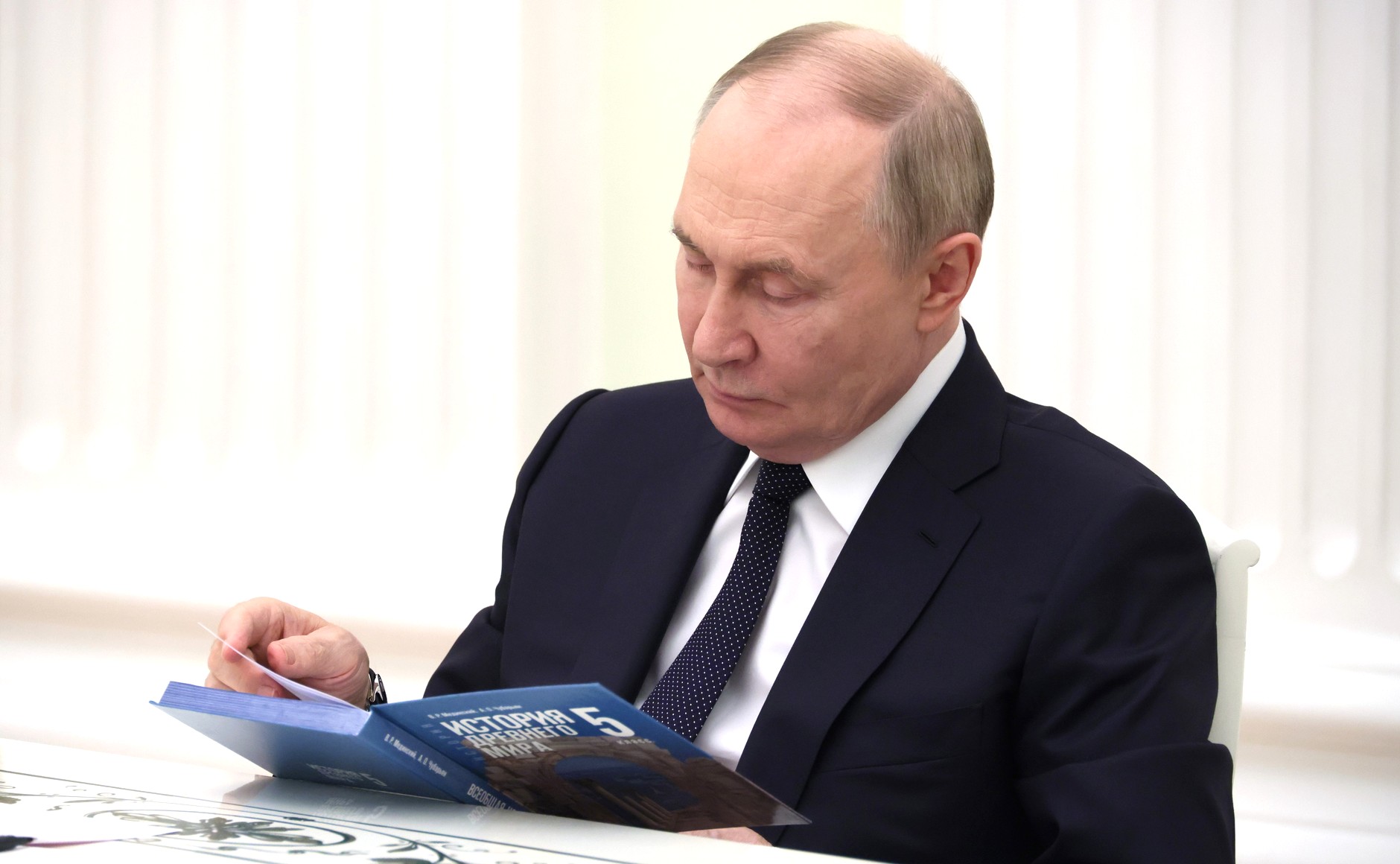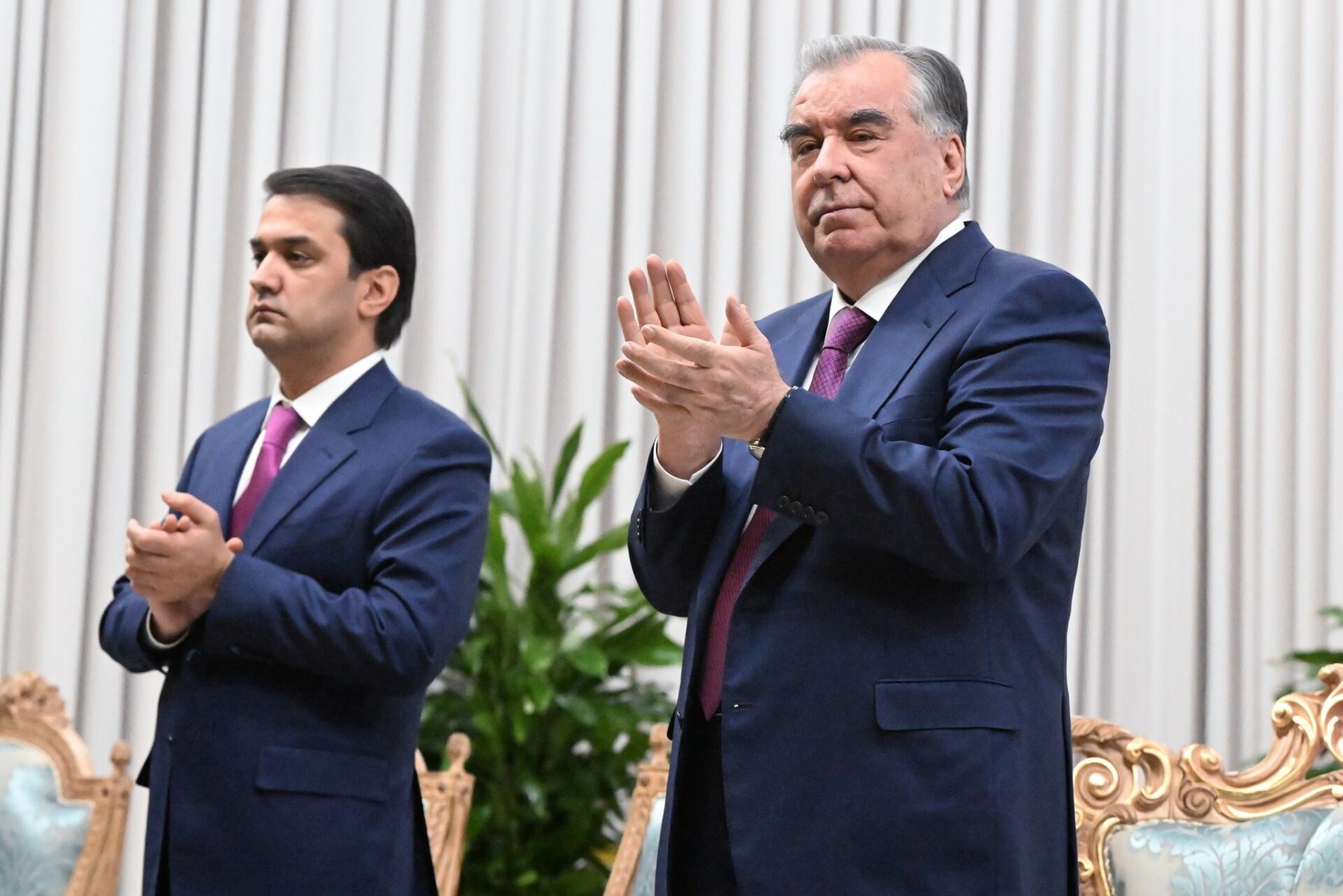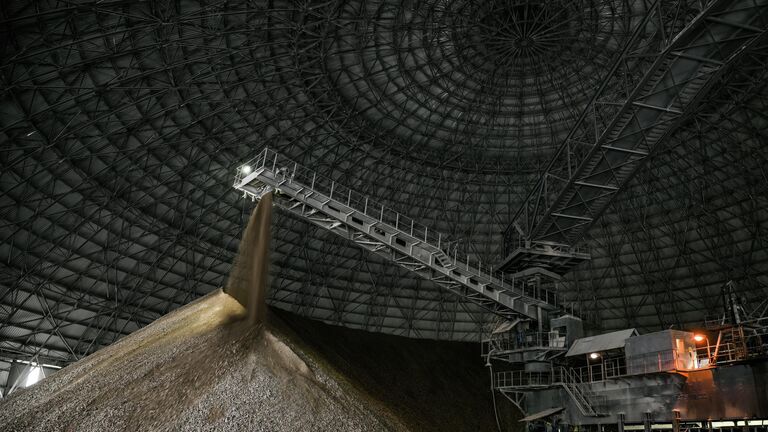
Dmitry Medvedev’s Chechnya Policy
Dmitry Medvedev’s Chechnya Policy
The so-called elections of March 2, which endorsed Dmitry Medvedev as the next Russian leader, were less about whether or not he will be president (that decision had already been made personally by President Vladimir Putin and a small team of his associates who, in the longstanding tradition of the Russian Empire, chose their man long before the elections) and more about conferring on Medvedev as much legitimacy as possible. Not since the time of Peter the Great has the Russian emblem of the double-headed eagle captured the essence of the Russian government system so completely: the two heads of the Byzantine eagle stand for two Russian rulers—Vladimir Putin and Dmitry Medvedev.
Dmitry Medvedev’s candidacy was not a random or a hasty choice. Vladimir Putin’s team long contemplated putting one of the people close to the president on the ballot. From time to time, “leaks” of confidential information were engineered to try out different candidates and test public opinion, including that of the international community.
The advantage of the new president is that he has no team of his own. He does have close ties to Putin’s team, as he would not amount to much without it. This will be both his plus and his serious future vulnerability as a politician.
Medvedev’s freedom will become his downfall—the lack of his own team will prevent him from acting independently. He will always have to keep in mind those who have made him president. In contrast with his predecessor, he has neither FSB nor military roots and therefore does not represent the law-enforcement powers. So who are his core constituencies? They are liberals and democrats. In Russia, the concept of a democrat is not quite the same as in the West, and therefore Medvedev will be easily able to pass for a liberal Russian politician who looks like a cultured man with no history of bloodshed or black PR behind him.
His politics will be guided by reason, not revenge for all past losses, as might be the case with many Russian officials and politicians who see power as an opportunity to get even for all the misfortunes of their lives.
However, Medvedev—or at least those who were in less than total agreement with Vladimir’s Putin actions as president (Medvedev himself doesn’t come across as someone capable of acting decisively)—may try to pull together a new team around him in an attempt to keep Putin’s people away from shaping the presidential agenda. Should this be the case, Medvedev will have to keep up a double-faced game by professing his loyalty to Vladimir Putin, who will initially retain a very strong position in Russia’s political arena, while in the background shifting his personal position away from his former patron and current chairman of government of the Russian Federation.
Those who follow the events in Chechnya will be interested in Medvedev’s policy toward Vladimir Putin’s appointee, Ramzan Kadyrov. Will Medvedev lend his full and unconditional support to the regime that society sees as less than civilized? What will happen to the earmarks—outside of all plans and budgets—for construction and rehabilitation projects in Chechnya as well as for unrestrained entertainment and extravagant spending on various expensive gifts paid almost out of Ramzan Kadyrov’s personal funds, and his truly royal magnanimity toward the needy—a level of spending that no other regional leader can afford?
The first statements made by Medvedev asserting that Ramzan Kadyrov “is handling his job well” and that Chechnya “has transitioned from rebuilding to the development phase” already suggest that his understanding of Chechnya’s current state is far from clear (Ura-inform.com, February 4). For instance, as recently as March 12, Ramzan Kadyrov’s official website was reporting that the president’s “rebuilding program” was still being developed (Grozny-inform.ru, March 12).
According to the cheerful statements made by the Russian leadership, Chechnya has become a place of peace. In order to support that claim, the director general of Russia’s Foreign Ministry, Doku Zavgayev, who happens to be a former Communist official of the Chechen-Ingush Autonomous Soviet Republic and Moscow’s appointee during the first military campaign in Chechnya (1994–1996), frequently arranges visits by foreign delegations to Chechnya. Zavgayev serves as a key figure for organizing and promoting these so-called delegations guaranteed by the Russian state, which is prepared to grant considerable concessions to those willing to invest in Chechnya. At the core of these policies is not a shortage of Russia’s own investment funds but rather the desire to demonstrate Chechnya’s stability to Western leaders.
Without holding anything against the minor achievements that are mainly used for PR purposes, one should also note some inconsistencies between reality and Moscow’s public statements.
For instance, all visitors to Grozny last year were shown the restored Victory Avenue (Prospekt Pobedy). It was great to see the city’s main thoroughfare reborn and this promotional effort required thousands of people to work around the clock. In the end, the result of their efforts was a beautiful avenue that also happened to be generally unfit for human habitation because the rushed rebuilding job skipped over repairing the water supply and sewer pipe networks destroyed during the war. It is therefore not surprising that a year later, the republic’s government and the city mayor’s administration decided to shut the avenue down again in order to do something they should have done from the very beginning—to build water supply and sewer systems, as well as try to utilize previously-built telecommunications systems.
The other development that raises questions in the minds of those who monitor the situation in Chechnya has to do with the long-term tours in Chechnya of special police troops (OMON), Special Forces units and other police divisions, which last up to several months. During the first week of March of this year, for example, the following units that are permanently stationed in other Russian jurisdictions and cities were dispatched to Chechnya for a term of six months:
• Mordovia special police unit (Rosbalt.ru, March 4);
• Kostroma special police unit (Kostroma.rfn.ru, March 4);
• Udmurtia special police unit (Susanin.udm.ru, March 4),
• Penza special police unit (Tv-express.ru, March 6);
• Tyumen special police unit (Regions.ru, March 5);
• Pskov special police unit (Regions.ru, February 29);
• Consolidated platoon of Tyumen oblast (Newsprom.ru, March 5);
• Special police unit of the Interior Ministry department in Sverdlovsk Oblast and a consolidated platoon of Sverdlovsk police numbering over 200 servicemen (Nakanune.ru, March 3);
• Others, totaling approximately 70 units from Russia’s regions.
These numbers add up to several thousand police troops from various regions of Russia including Vladivostok, a city located thousands of kilometers away from Chechnya (Primamedia.ru, March 11). Of course, these units are not currently deployed on every road in Chechnya to extract bribes from every passing car because Ramzan Kadyrov’s police troops respond to any action by outside policemen with as much hostility as jamaat members. Incidentally, the Russian policemen return the sentiment by making no distinction between their Chechen colleagues and the jamaat members, treating them both as rebel fighters.
Why does a place as packed with police and army troops as Chechnya still require additional police and special services units from every part of a country as huge as Russia? Their role is less about maintaining order in Chechnya than about giving the Kremlin’s policies in the region a psychological impact. The mere presence of Russian police forces is designed to accomplish several things: first of all, to serve as evidence that Chechnya’s Interior Ministry reports to the Interior Ministry of the Russian Federation; secondly, to emphasize the fact that the stabilization of Chechnya is a national effort; and thirdly, to prevent the Chechen police from kicking back and joining the forces of armed resistance to Russia in Chechnya and the rest of the North Caucasus.
It can be stated with some certainty that Russia’s policies in Chechnya will not change much, at least not during the first year of Dmitry Medvedev’s presidency. It would be better for Medvedev to deal with Ramzan Kadyrov, as extravagant a figure as he is, than with the multiple issues that would emerge immediately after Kadyrov’s removal. Relative calm, even if achieved under an Asian-style dictatorship, is greatly preferable to the possibility of renewed activities of the resistance forces.


